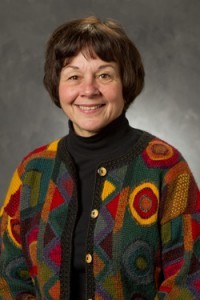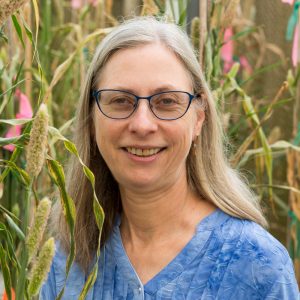Jan Westpheling

Creative Research Medal 2015
Jan Westpheling, professor of genetics, has made extensive contributions to the emerging field of bioenergy. Working as part of the BioEnergy Science Center, one of three Bioenergy Research Centers funded by the Department of Energy for biofuels research, Westpheling developed genetic methods for the previously uncharacterized bacterium Caldicellulosiruptor bescii and used those tools to engineer a pathway for ethanol production. This unusual organism grows best in the heated waters around hydrothermal vents, thriving in temperatures around 170 degrees Fahrenheit. Her laboratory engineered a version of this bacterium that is capable of converting switchgrass—a nonfood, renewable feedstock—directly into ethanol without conventional pretreatment of the biomass. Removing the necessity of pretreatment not only saves time, it also significantly reduces costs, one of the major obstacles to sustainable biofuel production. Westpheling’s discovery could pave the way for the rapid introduction of new biofuels to the market using sustainable biomass feedstocks, reducing dependence on non-renewable fuel sources such as petroleum, and limiting the production of greenhouse gasses.
Previous Award
Creative Research Medal 2001

 Distinguished Research Professor 2017
Distinguished Research Professor 2017 Creative Research Medal 2015
Creative Research Medal 2015 Creative Research Medal 2015
Creative Research Medal 2015